You want to have an overview of the Beauty industry in China for September 2023.
Beauty Professional, manager, Marketers… here we go.
Trends from Olivier VEROT , founder of GMA , expert in Beauty industry in China
Chinese makeup Make up Brands become “Unpopular”
In the past, when people thought of “affordable domestic goods”, it was synonymous with “a lot for a little money”. However, now there’s a shift in perception, often negative. Consumers feel that although these domestic products maintain a competitive price advantage below a hundred yuan, in reality, it’s just a concealed price hike.
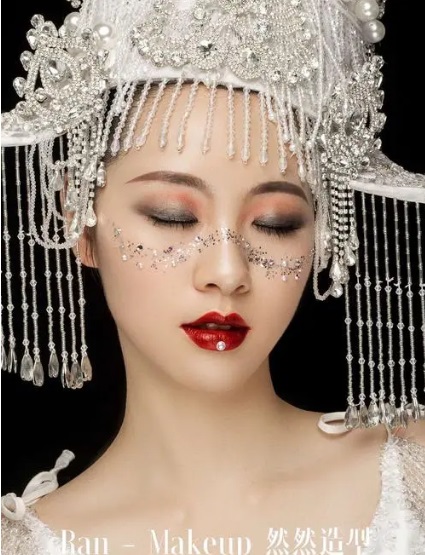
End of Guochao ?
Furthermore, against the backdrop of a downgraded consumption environment, consumers now have a new definition for “cost-effectiveness”. It’s not about pursuing the lowest price, but about getting the best value for a reasonable price. They expect these affordable domestic products to not just focus on packaging but also to enhance product quality and user experience. Brands need to find a balance between product size and price, while also upgrading product quality, to secure a position in the market.
End of tough times: Brands seek for “trendy” products.
Recently, daily cosmetic companies have been revealing their performance for the first half of 2023. With consumption slowly recovering, the industry is also witnessing a rebound.
This is evident in the performance data. According to financial reports, Shanghai Jahwa’s net profit increased by 90.90% year-on-year in the first half; brands like Pechoin, Betty, and Shangmei saw both their revenue and net profits grow.
Trendy Ingedrients
From interviews with various cosmetic companies, terms like high-end, functional skincare, trendsetting products, and R&D have been frequently mentioned. While the resurgence and upgrade in consumer behavior undeniably brings positive prospects for the industry, the aggressive expansion strategies of international brands and the intense competition across various sub-segments in the cosmetics sector make the individual growth paths of these companies and their breakout strategies worth watching.
High-end cosmetics account for about 86% of sales
Premium Brands are “dominating” department store shopping centers.
High-end cosmetics mania is Offline channels , shops etc.
Market data and surveys show that cosmetics still perform well in offline channels such as department stores and shopping centers. In the first half of the year, high-end brands achieved double growth in sales volume and revenue in department stores, dominating a major part of the market share. Skincare products, especially those addressing anti-wrinkle and skin rejuvenation needs, are the main drivers behind the performance in department stores and shopping centers. The makeup category is also showing signs of recovery, especially base makeup products. Whether it’s the unique experience services, integration of member assets, or even showcasing the brand image and reflecting market status, department stores and shopping centers play an irreplaceable role for high-end brands.
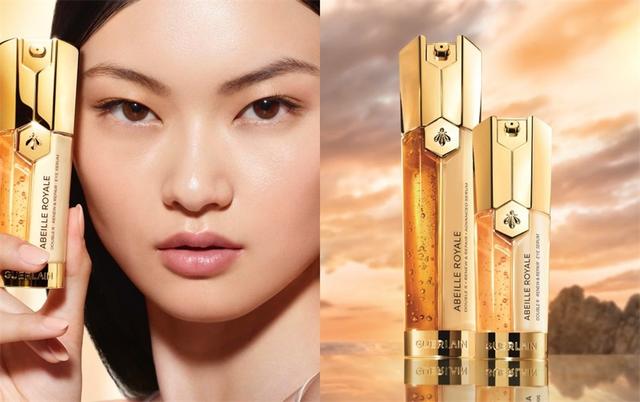
Read more
China’s Male Skincare Market Flourishes
China’s male skincare market is forecasted to soar to 24 billion yuan by 2027, as unveiled during the opening of the Shanghai International Cosmetic Festival at MOHO Mall, Jing’an district
This insight stems from the “New Beauty Momentum” report, a collaborative effort between L’Oréal China and National Business Daily. Highlighting a noticeable surge, the male cosmetic sector expanded from 10.44 billion yuan in 2013 to 16.59 billion yuan in 2021.
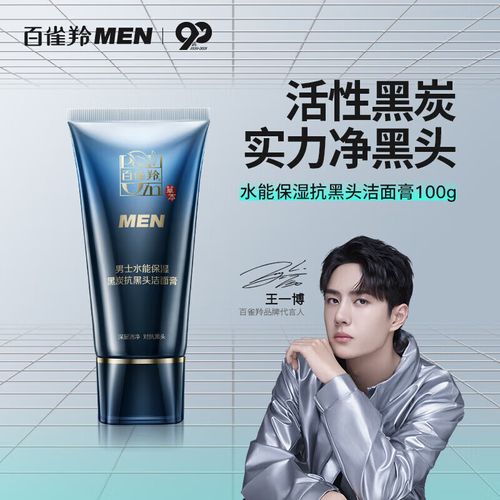
Interestingly, the report sheds light on the beauty inclinations of Generation Z men. Compared to their predecessors from the 1980s and 90s, today’s young men invest more in their looks. Their cosmetic expenditure in 2021 hovered between 1,000 to 2,000 yuan monthly, aligning closely with their female counterparts. Popular products among them range from lotions, emulsions, lipsticks, eyebrow and eyeliner products to liquid foundations.
Additionally, the “silver economy” – targeting those over 50 – is gaining traction, pointing to a broader shift in beauty and wellness trends in China.
China’s Silver Generation Embraces the Cosmetic Revolution
China’s ‘silver economy’, a term capturing the array of economic endeavors tailored to cater to those over 50, is experiencing an upswing, particularly in the cosmetics sector. This growth mirrors the broader inclination of this demographic towards beauty and self-expression, a trend which shows no signs of slowing down.
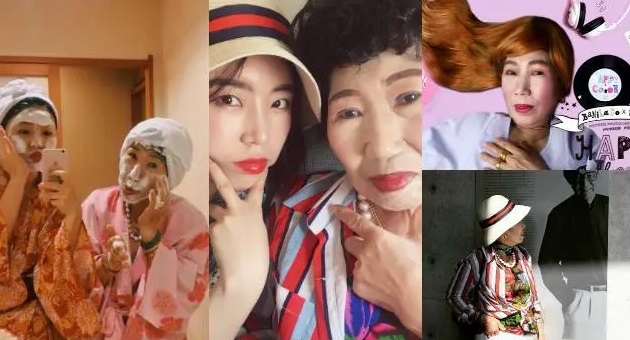
A case in point is the rising star, Gramma Wang Loves Wearing High-heels. She’s not your typical influencer; she’s an emblem of China’s silver generation. With 1.4 million followers on her Douyin account, Gramma Wang’s beauty and fashion tips, primarily targeting those born in the 80s, are garnering massive attention. Her success is a testament to the cosmetic industry’s expanding reach, spanning generations and debunking age-related myths.
Recognizing this trend, universities are jumping on the bandwagon, leveraging the power of live streaming to impart makeup wisdom and techniques to the elderly. It’s not just about aesthetics; it’s about confidence, empowerment, and the joy of learning a new skill at any age.
Data underscores this sentiment. According to a recent report, China witnessed a surge in per capita cosmetics consumption – from 181 yuan in 2017 to 407 yuan in 2022. Predictions suggest this figure will escalate to 600 yuan by 2025. Simultaneously, the luxury cosmetics segment is thriving. The market ballooned from 69.4 billion yuan in 2018 to an impressive 128 billion yuan in 2021.
In conclusion, China’s silver generation, often overlooked by marketers in the past, is proving to be a force to reckon with in the beauty world. They’re redefining norms and proving that age is just a number when it comes to self-expression and self-care. The cosmetic industry, in recognizing and catering to this segment, is poised for a renaissance of its own
Douyin Emerges as a New E-commerce Powerhouse in China
China’s e-commerce landscape is witnessing a seismic shift as Douyin, known internationally as TikTok, establishes itself as a formidable player in the market. Let’s delve into the trajectory of Douyin’s rise and understand how it’s challenging giants like the Alibaba Group, which once enjoyed unparalleled supremacy in the Chinese e-commerce arena.
Douyin Outpaces Alibaba in E-commerce Momentum for beauty Product
Douyin (tiktok) is by far the largest marketing budget invested by cosmetics brands in China , accounting for 43.5% of the total, with RED in second place at 29.4%
While Alibaba’s performance remained in the spotlight during China’s hallmark sales event, “Double Eleven 2021,” the story that unfolded over the year showcased a decelerating growth trend for the conglomerate. This deceleration was markedly visible in the cosmetics niche. Reports from local sources indicate that Alibaba’s GMV for skincare items increased by a mere 0.3%, reaching 181.6 billion yuan (US$27.7 billion) between January and November 2011. Alarmingly, the makeup segment witnessed a decline of 9.1%.
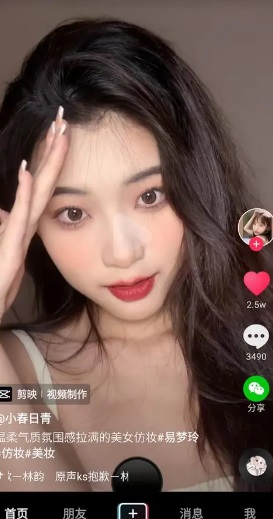
In sharp contrast, ByteDance-owned Douyin made significant inroads, with its cosmetic GMV clocking in at a staggering 367.82 billion yuan (US$57.9 billion) during the same period.
The momentum seems to be carrying over into 2022. While Alibaba grapples with a 27% dip in cosmetic GMV, amounting to 13.666 billion yuan (US$2.15 billion) in January, Douyin has witnessed an astonishing 364.5% boost, securing 6.243 billion yuan (US$982.6 million). For brands operating in the beauty industry, Douyin is no longer just a social platform but a crucial e-commerce partner.
In conclusion, as Douyin continues to reshape China’s e-commerce terrain, it’s evident that the era of single-platform dominance is waning, giving way to a more diverse and competitive marketplace.
Little Red Book for Marketing KOL , Reviews
Little Red Book, also known as Xiaohongshu, is a vital social e-commerce platform in China, bridging user-generated content with online shopping. Brands leverage its vast community of engaged users for authentic product reviews and testimonials. With a primary audience of urban females aged 18-35, it’s a hotspot for beauty, fashion, and lifestyle brands. Influencer collaborations on Little Red Book amplify brand visibility and drive sales. Utilizing its unique blend of social media and e-commerce, brands can foster genuine connections and grow their Chinese consumer base.
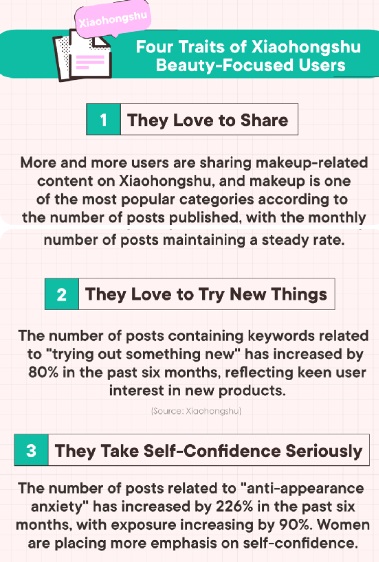
Big Groups purchase Brands to Perform in China
Kering Group purchase Creed (perfumed products) for €3.8 Billion
On August 30th, Kering Group, the parent company of Gucci, announced the issuance of a €3.8 billion bond to finance the acquisition of perfume brand Creed. The group reached an acquisition agreement with Creed at the end of June, with the exact value of the transaction yet to be disclosed. The deal is expected to be completed in the second half of 2023. Founded by James Henry Creed in 1760, Creed reported an annual revenue exceeding €250 million as of March 31, 2023. Creed products have great potential in China.
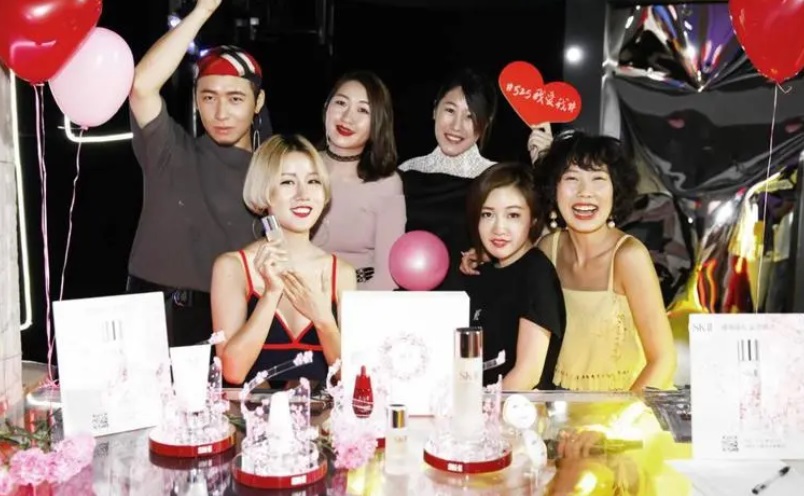
Post-exit from China, e.l.f. Beauty Acquires New Skincare Brand for ¥2.58 Billion
The Brand e.l.f. Beauty, the parent company of the American budget makeup brand e.l.f., has signed a final agreement to acquire the rapidly growing vegan skincare brand Naturium for $355 million (about ¥2.58 billion) in a mix of cash and stock. Notably, this is e.l.f. Beauty’s first acquisition since the 2020 pandemic. In March 2023, e.l.f. announced its temporary exit from the Chinese market, shutting down its Tmall and Douyin flagship stores.
Retail is recovering in China
Betti Achieves Over 15% Revenue Growth in the First Half, Demonstrating Effective Offline Strategy
On August 28th, Betti released its semi-annual financial report for 2023. The report revealed that the company achieved a business income of ¥2.368 billion during the reporting period, a year-on-year increase of 15.52%. The net profit attributed to the parent company reached ¥450 million, a year-on-year increase of 13.91%.
Betti’s overall revenue saw double-digit growth, with its offline channel’s performance being particularly impressive. The revenue from offline channels grew from 20.28% in the same period of 2022 to 26.08%, with the sales amount increasing from ¥414 million to ¥615 million, a year-on-year increase of 48.64%.
Read more
Approaching ¥5 Billion! Financial Results of Four Listed Oral Care Companies Released
The Oral Care Industry is booming.
With the release of Yunnan Baiyao Group’s financial report for the first half of 2023, all four oral care industry listed companies have unveiled their performance for the first half of 2023. Yunnan Baiyao’s leading position remains steady, while the “Two-sided Needle” brand turned its losses into profits. All four listed companies achieved growth in performance.
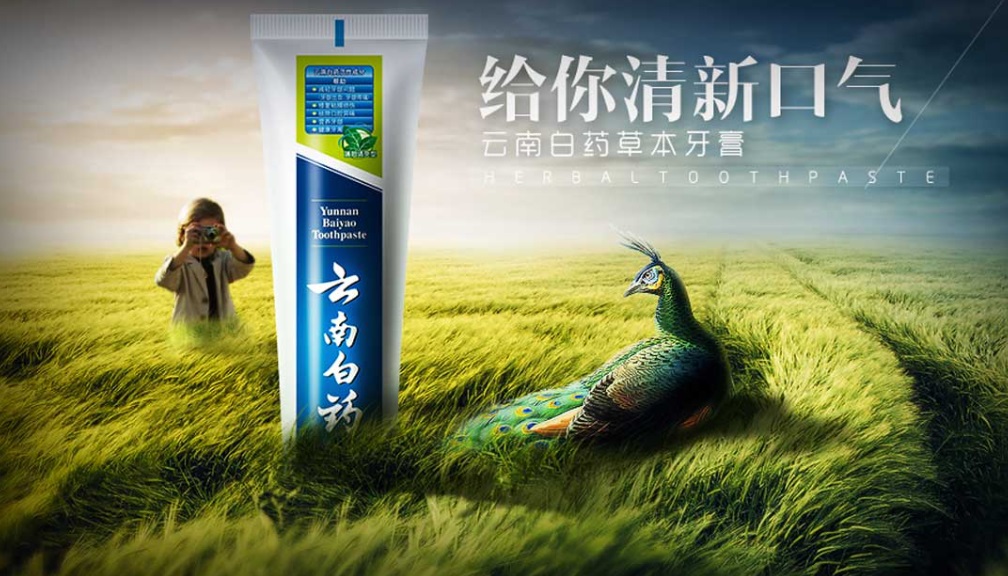
According to the financial report, from January to June 2023, the total sales of these four oral care companies reached ¥4.813 billion, nearing the ¥5 billion mark. Of this, Yunnan Baiyao contributed a whopping 67% with its revenue of ¥3.245 billion.
Product Technology: China is very demanding
Brain Dead Launches “Mushroom-Cola Flavored” Perfume
Street brand Brain Dead, known for its playful designs and humorous style, has unexpectedly ventured into the realm of fragrances by launching a mushroom-cola flavored perfume. The perfume is available in a standard 50ml size and a 2ml sample size.
Diptyque Releases “Imaginary Forest” Limited Edition Series
Recently, Diptyque collaborated with Parisian artist Julien Colombier for the second time to release the “Imaginary Forest” limited edition series, exclusively available at the Xintiandi flagship store in Shanghai. The series, themed around the jungle, clouds, and plants, uses watercolors and pastels to create vibrant color textures, showcased on works made using traditional ceramic techniques.
Chanel Opens a Retro-themed Diner
To celebrate the launch of its new Chance perfume, Chanel opened a pop-up diner in Williamsburg, USA. Named “Lucky Chance Diner”, the entire diner features a pastel-themed décor. Within this limited-time concept diner, Chanel displays its Chance series perfumes and offers ice cream, pastries, and other delicacies. We can see hot Topic of discussion in China about that.
DO YOU WANT TO SELL IN CHINA ?

NEED A PARTNER IN CHINA ?
Here are 10 reasons why cosmetics brands should consider collaborating with GMA (Gentlemen Marketing Agency) in China:
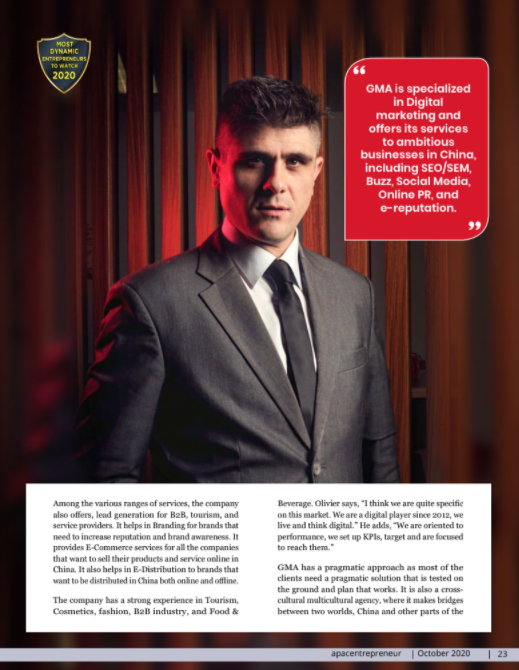
- Deep Understanding of the Chinese Market: GMA has a profound knowledge of the ever-evolving Chinese cosmetics market, ensuring that brands remain relevant and appealing to local consumers.
- Digital Expertise: With China being a predominantly digital market, GMA’s expertise in digital marketing strategies, from WeChat to Douyin, ensures brands have a robust online presence.
- Localized Content Creation: GMA has a knack for crafting content that resonates with Chinese consumers, bridging the cultural gap and maximizing brand appeal.
- Strong Relationships with KOLs: In China, Key Opinion Leaders (KOLs) drive significant sales and brand awareness. GMA’s established connections with KOLs can give cosmetic brands an edge in influencer marketing campaigns.
- E-commerce Mastery: GMA is well-versed in leveraging platforms like Tmall, JD.com, and Redbook, helping cosmetic brands optimize sales in China’s thriving e-commerce landscape.
- In-depth Consumer Insight: GMA conducts thorough market research to understand consumer preferences, buying habits, and emerging trends, ensuring that cosmetic brands align their offerings accordingly.
- Regulatory Guidance: The cosmetics industry in China is subject to changing regulations. GMA provides invaluable guidance, helping brands navigate regulatory complexities and ensuring compliance.
- Integrated Marketing Approach: Beyond just digital, GMA offers an integrated marketing approach that combines PR, event management, and offline campaigns to maximize brand exposure.
- Tailored Strategy Development: Recognizing that no two brands are the same, GMA customizes its marketing strategies to fit the unique identity and goals of each cosmetic brand.
- Track Record of Success: GMA has a history of successful collaborations with both domestic and international brands, highlighting its effectiveness and reliability as a marketing partner.

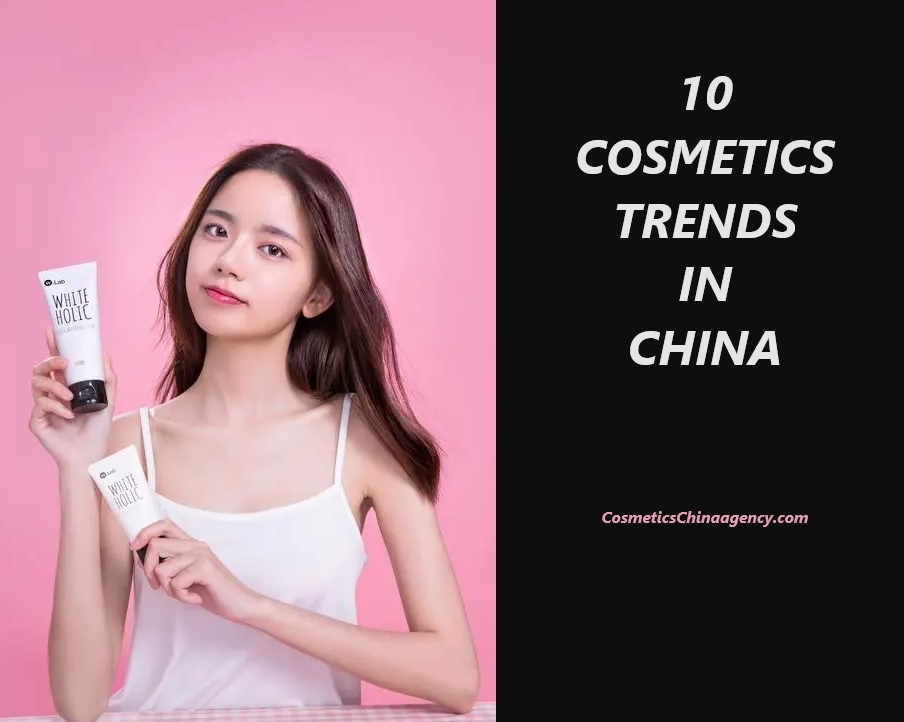
1 comment
Xin Zhuang
Hello
We are a Guangzhou Amarrie Cosmetics a Distributor of Cosmetics in China and we are searching to sell beauty brands to our online channels
Contact me please to discuss